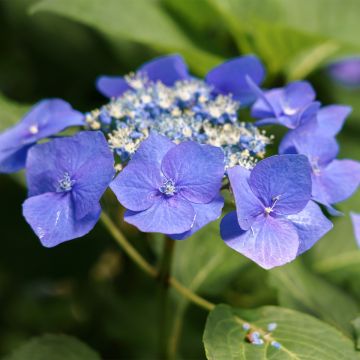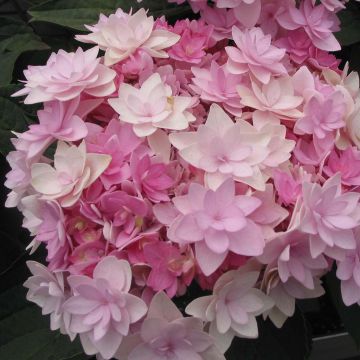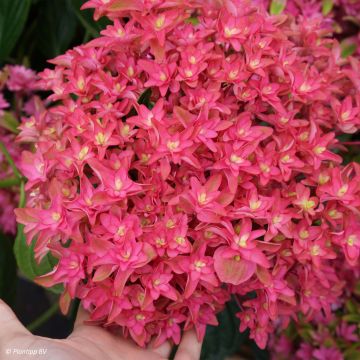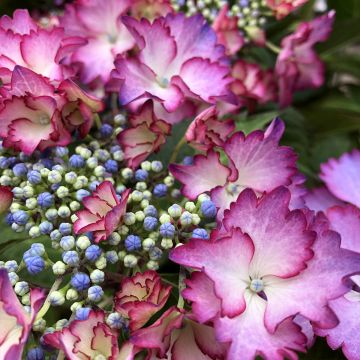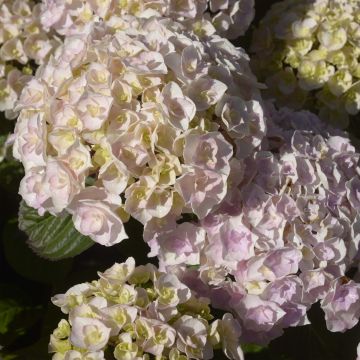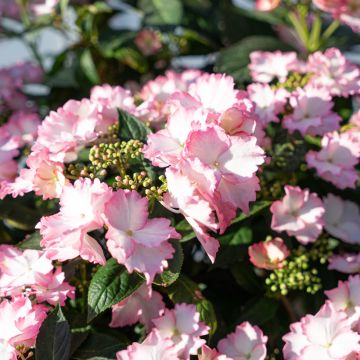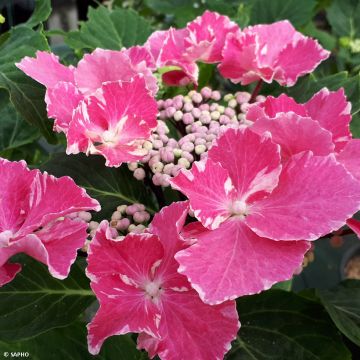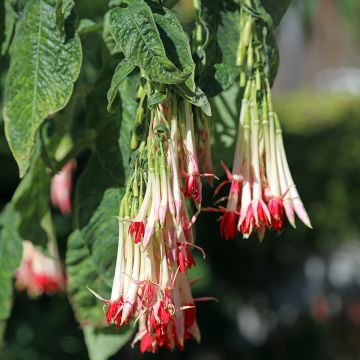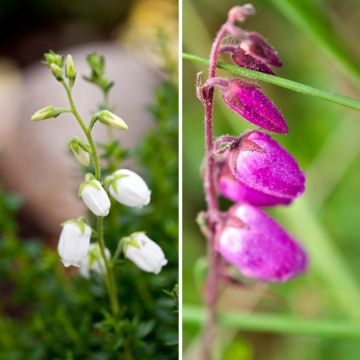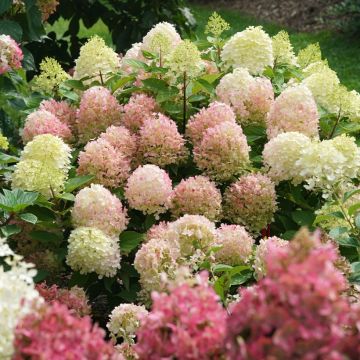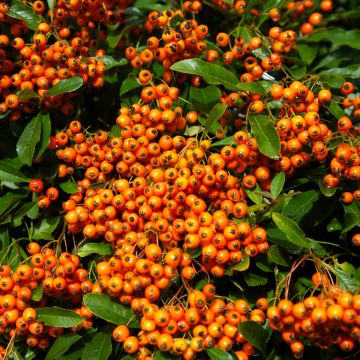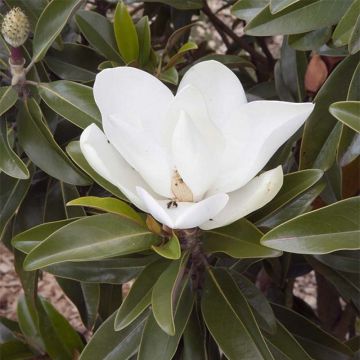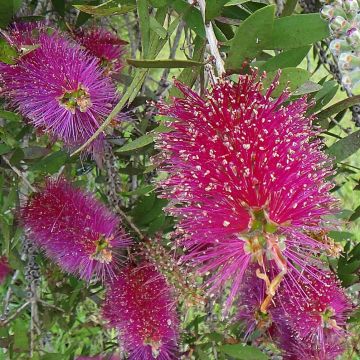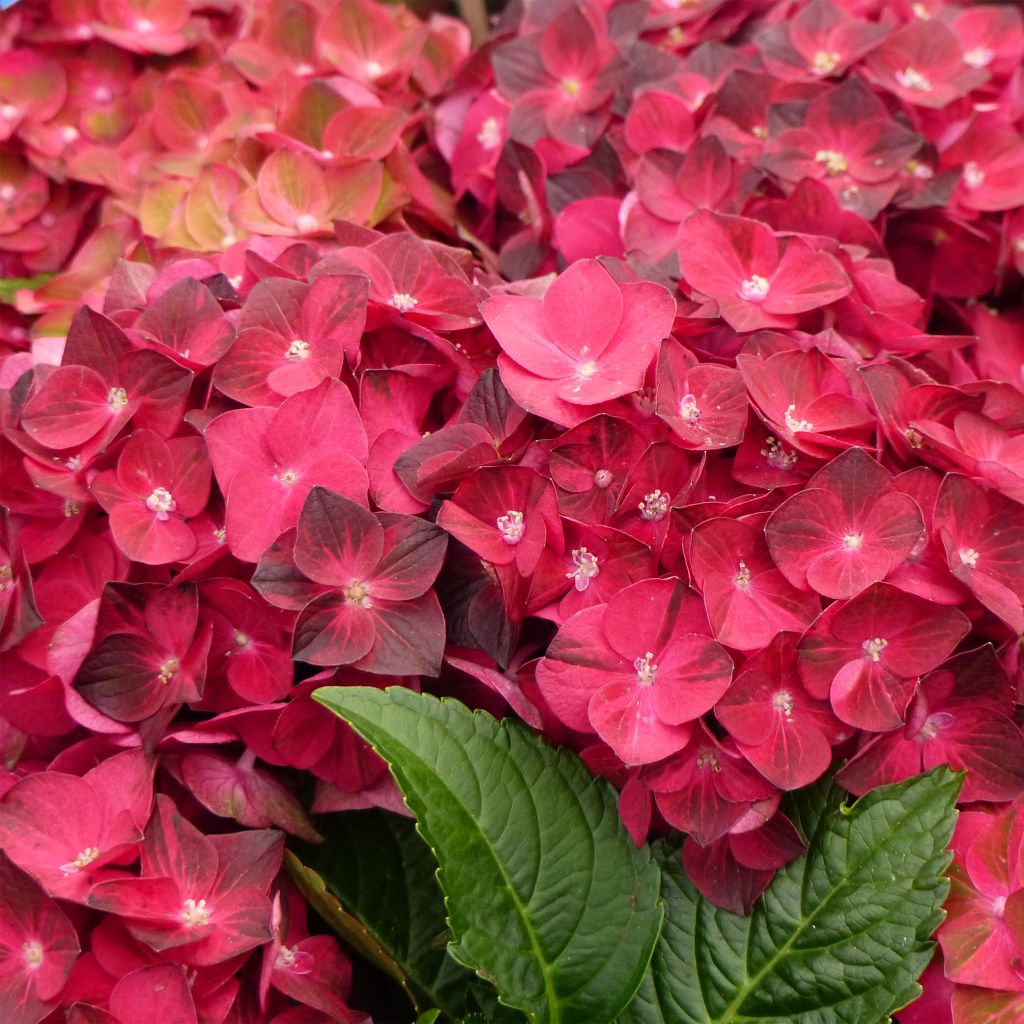

Hydrangea macrophylla Ruby Tuesday
Hydrangea macrophylla Ruby Tuesday
Hydrangea macrophylla Magical Ruby Tuesday
Bigleaf Hydrangea, French Hydrangea, Mophead Hydrangea
This hydrangea of a pretty dark red has thrived in its pot in our Mediterranean garden but exposed to the north. The flowers have turned green for over a month now, but the young plant gives us complete satisfaction.
Tarrieu S., 17/10/2020
Special offer!
Receive a €20 voucher for any order over €90 (excluding delivery costs, credit notes, and plastic-free options)!
1- Add your favorite plants to your cart.
2- Once you have reached €90, confirm your order (you can even choose the delivery date!).
3- As soon as your order is shipped, you will receive an email containing your voucher code, valid for 3 months (90 days).
Your voucher is unique and can only be used once, for any order with a minimum value of €20, excluding delivery costs.
Can be combined with other current offers, non-divisible and non-refundable.
Home or relay delivery (depending on size and destination)
Schedule delivery date,
and select date in basket
This plant carries a 24 months recovery warranty
More information
We guarantee the quality of our plants for a full growing cycle, and will replace at our expense any plant that fails to recover under normal climatic and planting conditions.

Would this plant suit my garden?
Set up your Plantfit profile →
Description
The Hydrangea macrophylla, 'Magical Ruby Tuesday', is the latest addition to the Magical series, awarded at Plantarium 2015. It brings a very colourful red touch to this group of hybrids whose shades change with the seasons. Its flowers are born in soft dark red pompons, then successively turn to red-pink mixed with grey-red and bright green before fading into softer tones. Its generous flowering lasts all summer. It is perfect for making fresh or dry bouquets. Its compact habit is well suited to growing in large containers or shaded massifs in non-limestone soil. Very hardy.
Hydrangea macrophylla, from which 'Magical Ruby Tuesday' is derived, belongs to the Hydrangeaceae family, native to China and Japan. 'Magical Ruby Tuesday' is part of an award-winning variety selected for their colour-changing flowers throughout the season. It is a hardy bush with a compact habit, wider than tall, 100 cm (39.4 in) high for 120 cm (47.2 in) in spread. Depending on growing conditions, it can reach 1.25 m (4 ft 1 in) in height in 10 years. In June, the tiny flowers form dense bouquets of pompons in a rich and vibrant red, with a small white-pink bud at their heart. These delightful flower heads turn fuchsia red mixed with black-grey, then transform to fuchsia pink mixed with leaf green, and then fade, in early autumn, into a texture resembling paper. They then take on soft old rose and pale green shades. The flowering is accompanied by dark green, deciduous foliage. The leaves are opposite. They reach a minimum of ten centimetres in length. They are single, ovate to elliptical, dentate, ending in a sharp point.
With excellent hardiness, hydrangeas are well known for brightening up the north side of houses. This variety will be happy in borders as well as hedges. This variety is particularly suited to container cultivation, which can be placed on the terrace or near the entrance. Even though these plants are not fond of limestone, they are not strictly ericaceous plants. Pair them with magellanica fuchsias, annual impatiens, or plant spring-flowering bulbs in front of their round silhouette. Enjoy its beautiful and long-lasting flowers in the garden or at home in bouquets.
Report an error about the product description
Hydrangea macrophylla Ruby Tuesday in pictures
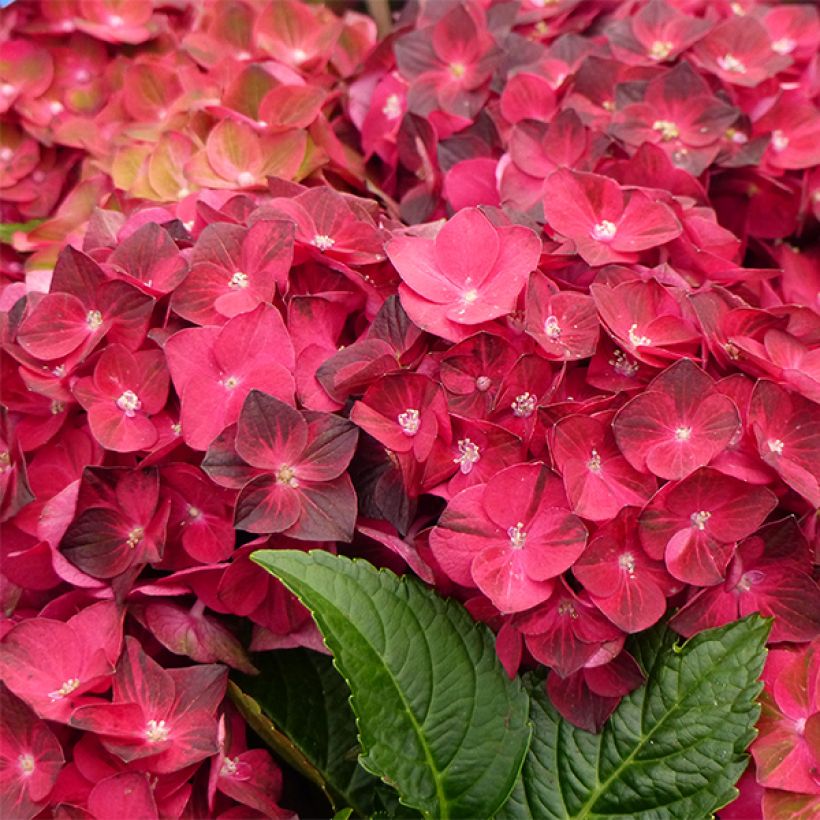

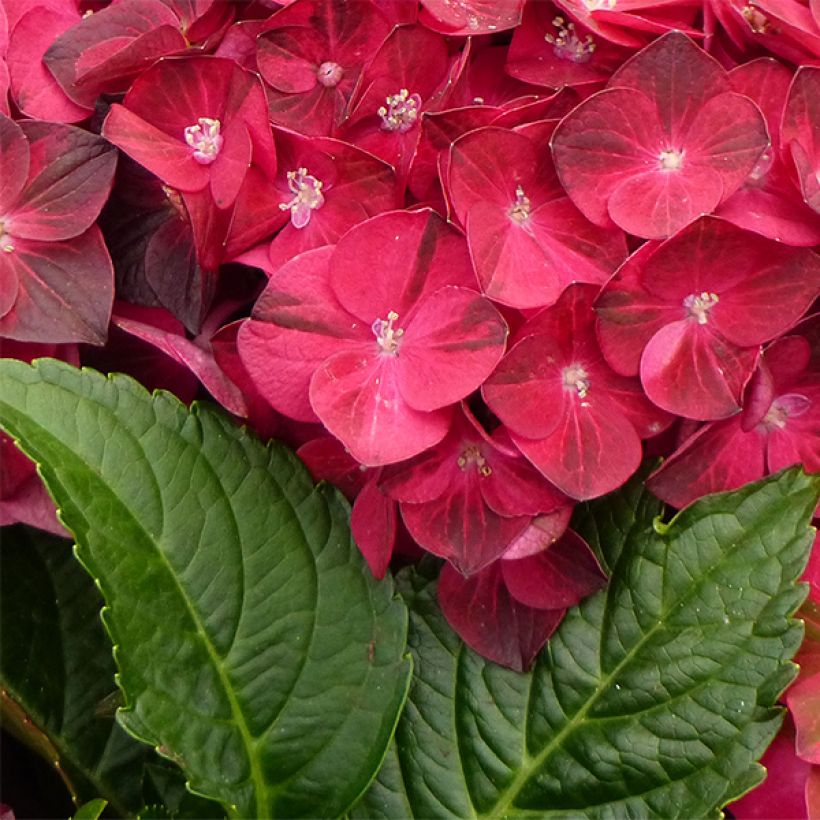

Plant habit
Flowering
Foliage
Botanical data
Hydrangea
macrophylla
Magical Ruby Tuesday
Hydrangeaceae
Bigleaf Hydrangea, French Hydrangea, Mophead Hydrangea
Cultivar or hybrid
Other Hydrangea Macrophylla
View all →Planting and care
Hydrangea macrophylla 'Magical Ruby Tuesday' should be planted in spring or early autumn, preferably in a shaded spot like against an east-facing wall or even north. It can tolerate the morning sun well, but cold and drying winds should be avoided. The plant doesn't necessarily require ericaceous compost but appreciates deep, fresh, well-drained, relatively fertile soil. Before planting, it's advisable to enrich the soil with good fertiliser. If the soil is dry at the foot of the wall, place the root ball at least 30 to 40 cm (11.8 or 15.7 in) from the base of the wall and incorporate a quantity of well-rotted compost to better retain moisture in the soil. This hardy plant can be grown in cold regions without any problems.
Planting period
Intended location
Care
-
, onOrder confirmed
Reply from on Promesse de fleurs
Similar products
Haven't found what you were looking for?
Hardiness is the lowest winter temperature a plant can endure without suffering serious damage or even dying. However, hardiness is affected by location (a sheltered area, such as a patio), protection (winter cover) and soil type (hardiness is improved by well-drained soil).

Photo Sharing Terms & Conditions
In order to encourage gardeners to interact and share their experiences, Promesse de fleurs offers various media enabling content to be uploaded onto its Site - in particular via the ‘Photo sharing’ module.
The User agrees to refrain from:
- Posting any content that is illegal, prejudicial, insulting, racist, inciteful to hatred, revisionist, contrary to public decency, that infringes on privacy or on the privacy rights of third parties, in particular the publicity rights of persons and goods, intellectual property rights, or the right to privacy.
- Submitting content on behalf of a third party;
- Impersonate the identity of a third party and/or publish any personal information about a third party;
In general, the User undertakes to refrain from any unethical behaviour.
All Content (in particular text, comments, files, images, photos, videos, creative works, etc.), which may be subject to property or intellectual property rights, image or other private rights, shall remain the property of the User, subject to the limited rights granted by the terms of the licence granted by Promesse de fleurs as stated below. Users are at liberty to publish or not to publish such Content on the Site, notably via the ‘Photo Sharing’ facility, and accept that this Content shall be made public and freely accessible, notably on the Internet.
Users further acknowledge, undertake to have ,and guarantee that they hold all necessary rights and permissions to publish such material on the Site, in particular with regard to the legislation in force pertaining to any privacy, property, intellectual property, image, or contractual rights, or rights of any other nature. By publishing such Content on the Site, Users acknowledge accepting full liability as publishers of the Content within the meaning of the law, and grant Promesse de fleurs, free of charge, an inclusive, worldwide licence for the said Content for the entire duration of its publication, including all reproduction, representation, up/downloading, displaying, performing, transmission, and storage rights.
Users also grant permission for their name to be linked to the Content and accept that this link may not always be made available.
By engaging in posting material, Users consent to their Content becoming automatically accessible on the Internet, in particular on other sites and/or blogs and/or web pages of the Promesse de fleurs site, including in particular social pages and the Promesse de fleurs catalogue.
Users may secure the removal of entrusted content free of charge by issuing a simple request via our contact form.
The flowering period indicated on our website applies to countries and regions located in USDA zone 8 (France, the United Kingdom, Ireland, the Netherlands, etc.)
It will vary according to where you live:
- In zones 9 to 10 (Italy, Spain, Greece, etc.), flowering will occur about 2 to 4 weeks earlier.
- In zones 6 to 7 (Germany, Poland, Slovenia, and lower mountainous regions), flowering will be delayed by 2 to 3 weeks.
- In zone 5 (Central Europe, Scandinavia), blooming will be delayed by 3 to 5 weeks.
In temperate climates, pruning of spring-flowering shrubs (forsythia, spireas, etc.) should be done just after flowering.
Pruning of summer-flowering shrubs (Indian Lilac, Perovskia, etc.) can be done in winter or spring.
In cold regions as well as with frost-sensitive plants, avoid pruning too early when severe frosts may still occur.
The planting period indicated on our website applies to countries and regions located in USDA zone 8 (France, United Kingdom, Ireland, Netherlands).
It will vary according to where you live:
- In Mediterranean zones (Marseille, Madrid, Milan, etc.), autumn and winter are the best planting periods.
- In continental zones (Strasbourg, Munich, Vienna, etc.), delay planting by 2 to 3 weeks in spring and bring it forward by 2 to 4 weeks in autumn.
- In mountainous regions (the Alps, Pyrenees, Carpathians, etc.), it is best to plant in late spring (May-June) or late summer (August-September).
The harvesting period indicated on our website applies to countries and regions in USDA zone 8 (France, England, Ireland, the Netherlands).
In colder areas (Scandinavia, Poland, Austria...) fruit and vegetable harvests are likely to be delayed by 3-4 weeks.
In warmer areas (Italy, Spain, Greece, etc.), harvesting will probably take place earlier, depending on weather conditions.
The sowing periods indicated on our website apply to countries and regions within USDA Zone 8 (France, UK, Ireland, Netherlands).
In colder areas (Scandinavia, Poland, Austria...), delay any outdoor sowing by 3-4 weeks, or sow under glass.
In warmer climes (Italy, Spain, Greece, etc.), bring outdoor sowing forward by a few weeks.































